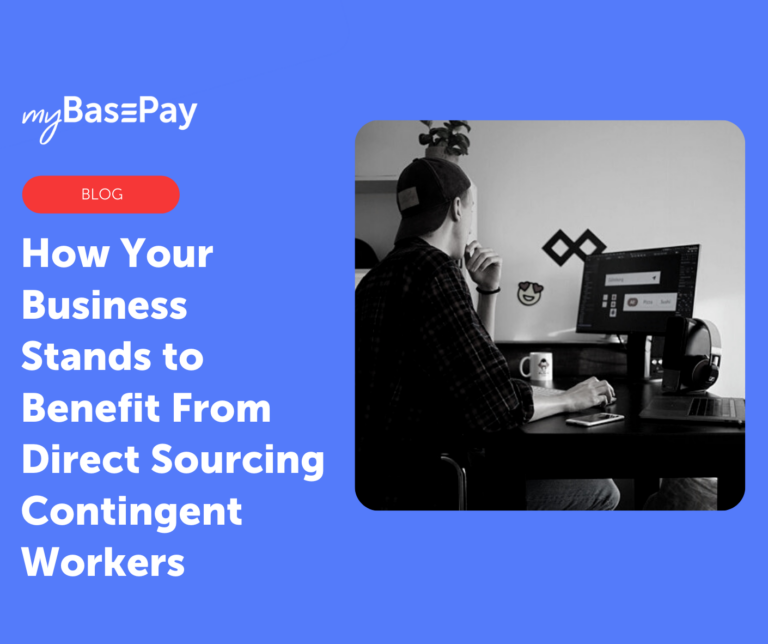Why On-Demand and Independent Workers Make for a More Agile Workforce (and Why It Matters)
For years, the idea of the workforce was that individuals would dedicate their entire career to the same organization. They would work for the same company for decades, rising through the ranks before collecting their 401k and possibly even a pension when the time came to retire.
Nowadays, hiring managers need to take everything they thought about the traditional workforce and throw it away. Today’s workforce largely favors those who have a professional background with various job positions and companies — and increasingly, that means workers are choosing an independent route.
Independent contractors and freelancers have created a more flexible workforce where talent can be sourced on-demand — for better and for worse. The companies that have the agility to scale and capitalize on this ever-growing movement will be best positioned to prevail in the long run.
What’s Behind the Rise of Independent Workers?
According to estimates from Statista, there were approximately 59 million freelance workers in the United States at the end of 2020 — or over one-third of the total workforce.
It shouldn’t be much of a surprise that the COVID-19 pandemic has added to the growth of the independent workforce, with many people getting laid off or furloughed from their jobs. However, the factors that have led to this changing employment landscape have been present for some time.
New technology has played a significant role in making freelancing more accessible than ever before. In addition to improved internet connections, the rise of digital recruitment firms specifically geared to freelancers has made it easier than ever to find work.
Of course, there is also the potential for improved work-life balance and total control over one’s schedule. The flexibility and perceived freedom to focus on life goals outside of work have made this a highly appealing option to many talented workers.
Advantages for Employers and Workers Alike
At first glance, traditional employers might be tempted to think that on-demand and independent workers detriment their operations. However, there are significant advantages for organizations that utilize this unique workforce.
There can be incredible value in hiring an on-demand worker for a single project or a short period. For example, a business that wants help launching a new website doesn’t necessarily need a full-time web designer on staff. After that project is over, there won’t be much need for someone to provide full-time design work.
By hiring an on-demand contractor, the company can complete the project faster and much lower cost. Businesses are legally required to offer full-time employees health insurance, paid time off, and other benefits.
In general, when hiring an independent worker, the business only needs to pay a rate tied explicitly to the project. Once the project is over, the agreement between the worker and employer ends.
Because independent contractors typically work for various organizations, they often have more significant opportunities for developing and honing their skills. Lessons learned from projects for a completely different client can be applied to your own project.
The on-demand workforce also allows employers to find the most talented individuals available to fill a particular need, regardless of geographic location. Online communications tools and cloud computing enables workers from around the world to deliver meaningful results. Hiring doesn’t have to be limited to those who already live in your area.
Lean operations and a more flexible approach to work can ultimately help businesses become more profitable thanks to independent workers, reducing their expenses while increasing productivity.
Navigating Workforce Challenges Associated With Independent Workers
While different opportunities are associated with the on-demand, independent workforce, companies must also exercise caution to ensure that agility and flexibility don’t undermine their outcomes.
First is the importance of navigating an increasingly complex world of employment compliance. While businesses typically don’t need to provide health benefits to contract workers, they must ensure that all employees are correctly classified. If a contract worker was misclassified as a full-time employee (or vice versa), it could result in significant fines from the IRS. Staying on top of all regulatory requirements for the areas where you hire workers is essential.
Maintaining solid communications can also become a challenge when companies are working with a remote, on-demand team. Onboarding and removing contract workers from the company’s messaging systems and shared cloud folders requires constant monitoring.
You don’t want an on-demand worker to still have access to company files when they are no longer working on a project. Conversely, you don’t want restrictions to be so stringent that on-demand workers don’t have access to the information they need to complete their tasks.
As the independent workforce continues to grow, so will the demand for such employees. Just as businesses attempting to hire traditional employees are seeing unprecedented numbers of unfilled job openings, organizations that fail to make their projects appealing to independent workers could struggle to attract top talent.
While competitive pay will always be top of mind, businesses should consider other potential benefits for independent workers. If freelancers are treated like second-class citizens, your company’s reputation (and ability to hire) will plummet.
Be Better Prepared for Employment’s Future With myBasePay.
The rise of on-demand and independent workers isn’t a temporary trend. It is a movement that will only grow in the years to come as more workers demand flexibility for their careers and as more employers come to recognize the potential benefits of such a workforce.
Of course, navigating critical back-office tasks such as payroll and compliance administration can become much more complicated when dealing with a geographically diverse, on-demand workforce. Thanks to our turnkey employer of record solutions, your ability to successfully navigate such processes can be greatly simplified when you work with myBasePay.
With unwavering support in the highly regulated payroll and human capital management areas, you don’t have to worry about compliance and other concerns. Instead, you can focus your efforts on getting the best possible results from the independent workforce.
Author: Cesar Romero
Cesar is the Head of Marketing at myBasePay, where he’s responsible for overseeing the company’s content marketing, community, and partnerships strategy. He also co-hosts The Ivy Podcast where he interviews executives from Fortune 500 companies on executive leadership. When he’s not helping startups with marketing and community strategy, you can find him paying it forward by serving as a mentor for leading organizations like StartingBloc, Hive, and Global Citizen Year.






